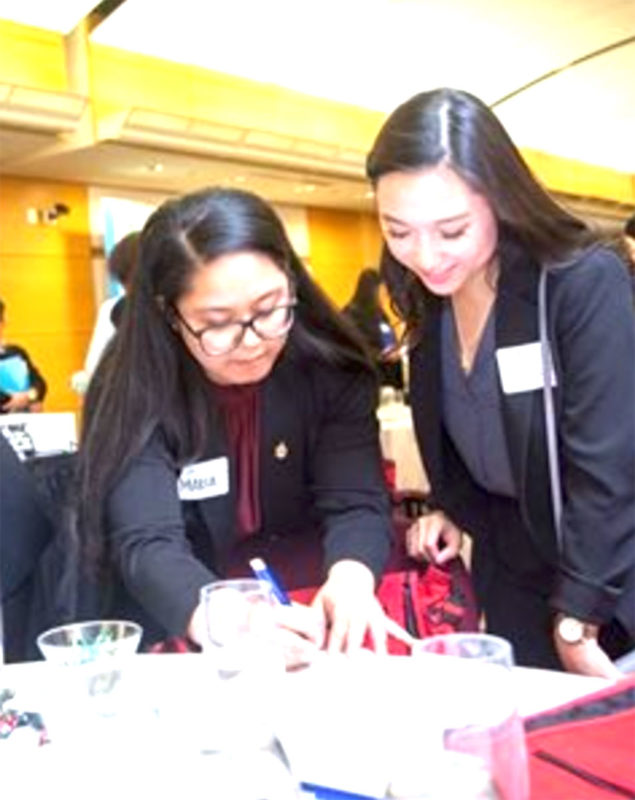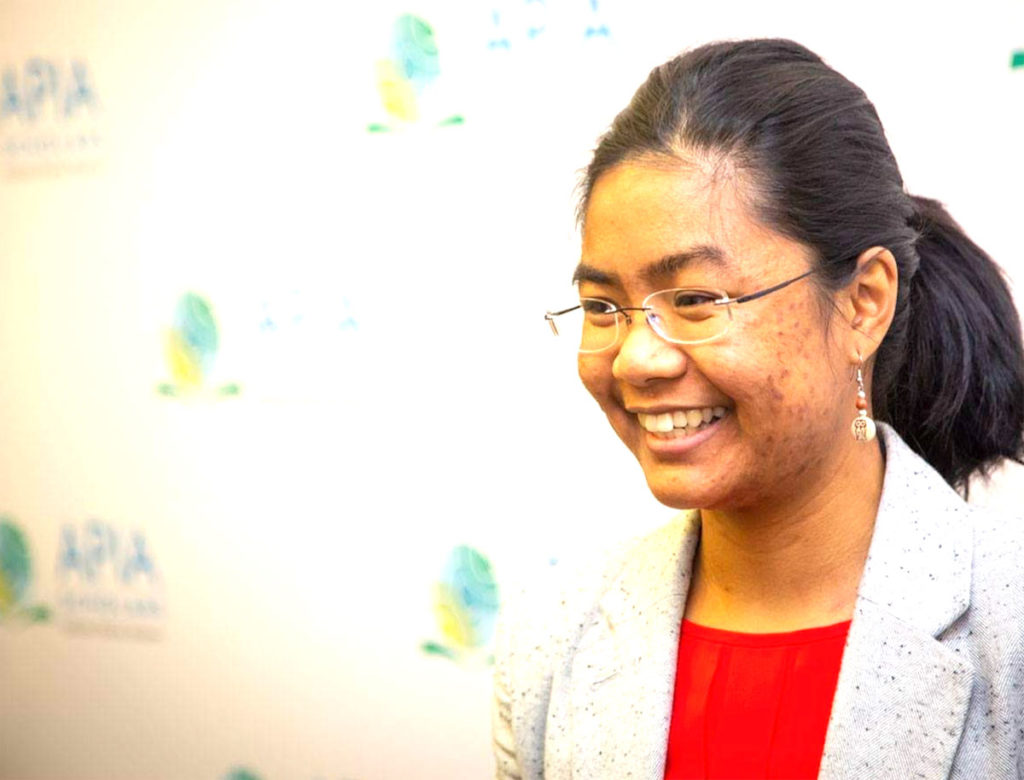Young Fil-Ams share experiences in applying for college and scholarships

Maria Dolojan (left) Bella Nguyen (right) during a breakout activity to get to know other fellow scholars in attendance in the Leadership Conference. APIA Scholars
LOS ANGELES — Applying for college admission and scholarship opportunities can be daunting for Filipino American students, whose parents may have sacrificed, often taking more than one job, just to ensure a better future for their children.
It is not unusual for Filipino American students to hear their parents stress the importance of obtaining a college degree to get a good job. However, Pew Research Center indicates that only 39 percent of Filipino adults who are 25 years old and above attain a Bachelor’s degree.
To get a better perception of what it takes to enter college and earn a Bachelor’s degree in the U.S., we briefly look at the challenges, successful application tips, and other factors that the Filipino American student must consider.
Challenges
Filipino American students may carry responsibilities beyond their college course curriculum.
“The barriers to entry of attaining a college degree are greater for first-generation college students who have to think about putting food on the table, helping their families. while navigating the complexity of the FAFSA form,” emphasized New York University graduate student Maria Dolojan.
“All that while simultaneously studying late nights and putting in extracurricular activities to pursue networking opportunities–these were things I had to deal with as a first-generation college student from a low-income family,”
A February 2020 informal survey by INQUIRER.net found that Fil-Am students have to deal with the “high-achieving” Asian stereotype, parents who do not understand the U.S. college application process, and other family responsibilities.
Yet a college education is getting harder and more expensive to get each year.
According to U.S. News & World Reports data, “in-state tuition prices amount public National Universities grew by 63% over a 12-year period from 2008 to 2020.”

Deborah Bitanga, 2015 Gates scholar. APIA Scholars
“As a Filipino American woman that endured poverty and the lack of resources necessary for me to succeed in the early stages of my academic career, I was supposed to be a statistic from the start,” said Dolojan.
College Application Tips
Dolojan advises college applicants to “do research as early as possible with your school counselor, teachers, or anyone willing to give you the time to help you navigate the college application process.”
In applying, “your story and identity matters – weave that into the parts that you share in your essays,” advised Maria Theresa Dizon of Portland State University.
Vienna Madrid of Emory University, agreed: “Learn how to write your story, talking about your struggles and experiences and how they have helped you grow.”
Ask the college you’re applying to if they could connect you with Filipino students who are currently attending, so you can learn from their perspective,” says Deborah Bitanga at The Evergreen State College.
Scholarships and Support
Scholarships can offer a variety of benefits such as money for tuition and other fees, leadership development like mentoring services, and a wide network of references for internships.
Some common ways students find out about scholarship opportunities are advice from school mentors, web searches and word of mouth.
Deborah Bitanga, a 2015 Gates Scholar shared, “I applied to multiple local, state, and national levels, where I received rejections first before acceptance. My main sources of information were recent graduates from my high school, Google, and a website updated by our school counselors.”
Alexander Pryor, APIA Scholars Director of Marketing and Communications, told INQUIRER.net, “We believe the community can support Filipino students by encouraging them to incorporate their unique cultural identities into their leadership style.”
APIA Scholars recently received a $1.2 million donation from Wells Fargo Foundation, which is managed by Dewey Norwood Jr., Senior Vice-President, Talent Acquisition Strategy & Targeted Programs Relationship Manager.
“Our goal is for Scholars to be able to grow in their authentic leadership, professionalism, innovation, and advocacy skills and access resources that will uplift the APIA community,” Pryor added.
Meanwhile, some students said they got support from close family and school staff.
“My academic advisors (Dr. McNinch, Dr. Walter, and Professor Aguon) always pushed me to go beyond my limits, to never dwell too long on the mistakes I make and see them as learning moments,” stated Dolojan.
“My mom is the most influential person in my career. She is the epitome of being Pinay – strong, resilient, and innovative against all odds when raising me on her own,” Dizon expressed.
“My Gates Millennium Scholars family has been supportive by reminding me, ‘Never take the first no,’” Bitanga added.
For more information on APIA Scholar opportunities, click here: https://apiascholars.org

